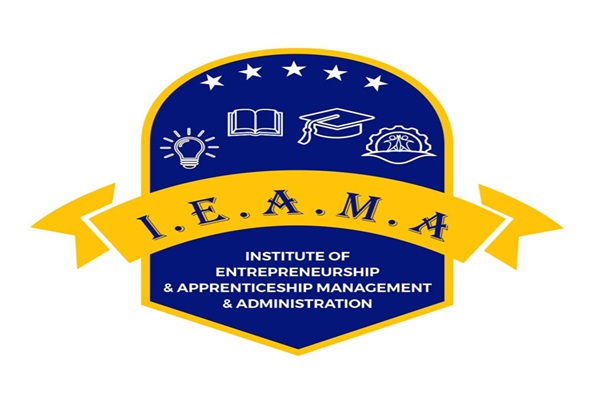The Institute of Entrepreneurship and Apprenticeship Management and Administration (IEAMA) has launched a new initiative, Finance Meet Entrepreneur 2025, aimed at strengthening partnerships between small and medium-sized enterprises (SMEs) and financial institutions to accelerate Nigeria’s economic development.
The event, held in Lagos, also featured the induction of new members and recognition of the vital contributions of microfinance institutions to business sustainability and poverty reduction across the country.
Driving Entrepreneurial Professionalism
Speaking at the launch, IEAMA’s Acting Registrar, Jerry Ibeh, said the institute is committed to redefining entrepreneurship by integrating professionalism and structure into Nigeria’s business landscape. He emphasized that one of IEAMA’s major goals is to formalize the traditional Igbo apprenticeship system, popularly known as IgbaBoy, describing it as a powerful engine behind Nigeria’s informal economy.
“We are institutionalizing the spirit of enterprise that has long existed in the Igbo apprenticeship model. It’s time to professionalize and scale that success nationwide,” Ibeh noted.
He added that IEAMA plays a dual role — connecting entrepreneurs with funding institutions while ensuring that financial resources are responsibly utilized.
“We partner with financial bodies to support entrepreneurs after they acquire skills, and we monitor to ensure that borrowed funds are used effectively for business growth,” he explained.
Building the Next Generation of Entrepreneurs
IEAMA has also partnered with the National Youth Service Corps (NYSC) through its Skill Acquisition and Entrepreneurship Development (SAED) initiative to train corps members in practical business skills. The collaboration aims to nurture a new generation of self-reliant Nigerian youth capable of creating jobs and driving innovation.
Experts Highlight Role of SMEs
Delivering the keynote address, Dr. Adebosin Gbadebo, Acting Provost of the Lagos State Cooperative College, emphasized that SMEs are the lifeblood of the Nigerian economy. According to him, they represent about 96% of registered businesses and contribute nearly 40% to Nigeria’s GDP.
“No economy can flourish without access to finance,” Gbadebo remarked. “With over 800 active microfinance banks across Nigeria, the SME sector has the potential to reshape our national economy if properly supported.”
He also categorized Nigerian enterprises into four tiers — nano, micro, small, and medium businesses, based on their revenue and workforce size — to underscore the diversity and potential within the sector.
Faith and Enterprise: A Fusion of Purpose
Among the honorees at the event was Dr. Edwin Ashibudike Nwabaku, a pastor and entrepreneur, who was conferred with an honorary doctorate by IEAMA. He described the program as eye-opening and transformative, emphasizing that entrepreneurship aligns with purposeful living.
“Life itself is a business,” Nwabaku said. “Pastors should teach members to become self-reliant and productive rather than dependent. Empowerment must begin in our communities and congregations.”
He added that his church plans to incorporate IEAMA’s training model into its empowerment programs to promote financial independence among members.

